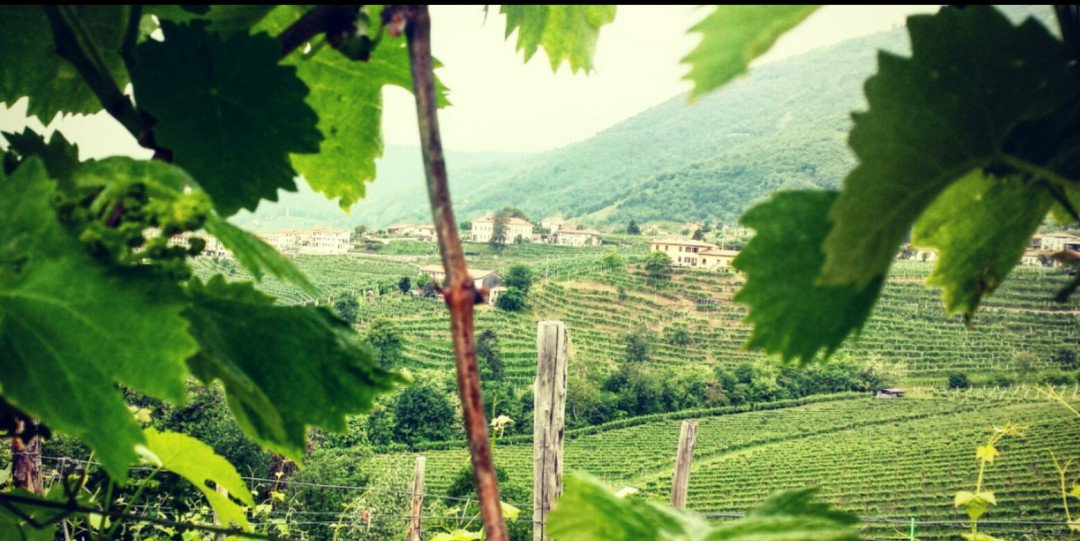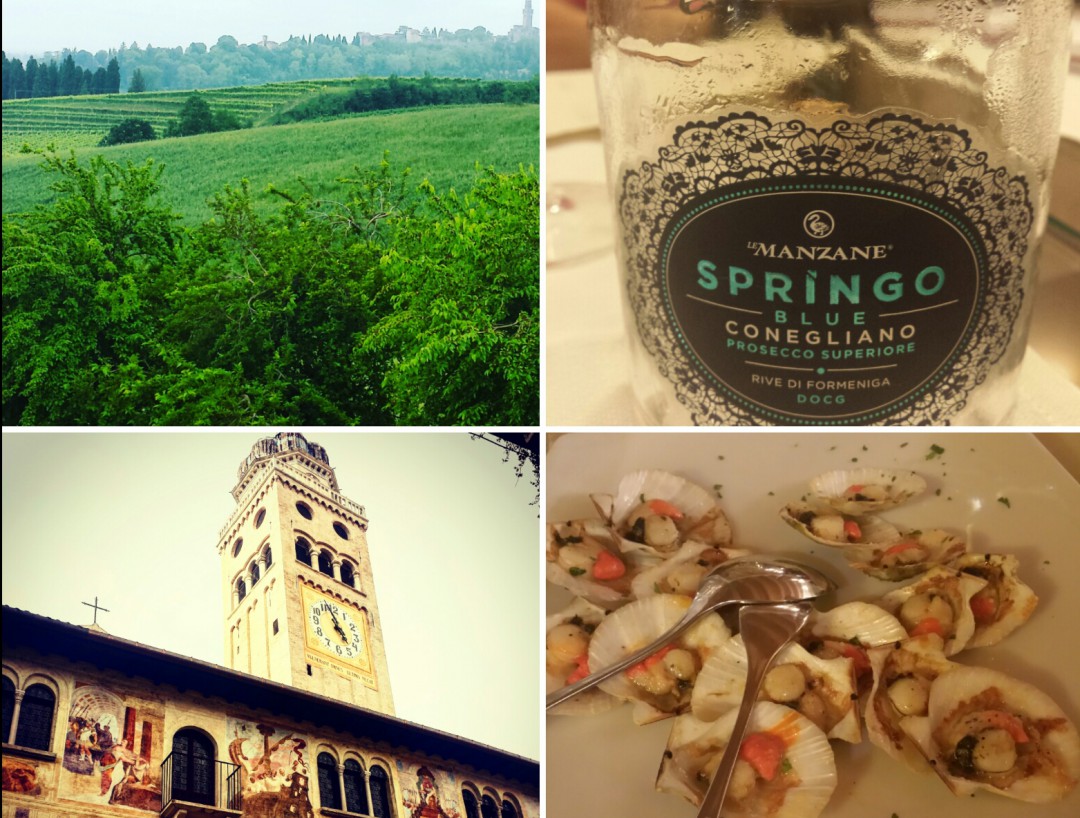A grey, overcast sky greeting us this morning as we hopped on the minibus for the days’ adventure. First stop, the Enology school for a proper classroom session to learn the wonders of DOCG Prosecco.
The main difference always cited when people compare Champagne with Prosecco, is the vinification method. Champagne (along with Cava and many other bubblies) ferments to completion in tank or barrel like any dry white, and is then transferred to bottle, dosed with sugar and yeast and sealed to undergo a secondary fermentation process whereby carbon dioxide bubbles get trapped in the bottle making the fine mousse we know and love. For Prosecco, the Italian (or Martinotti) method is employed. The initial vinification is much the same. However, the carbonation process takes place in sealed, pressurized tanks. Whereas Champagne is deliberately left to mature on its lees (spent yeast cells) to develop weight and complexity, Prosecco is bottled rapidly after the second fermentation. The resultant fizz is softer and frothier with exuberant fruity appeal.
Yesterday I explained the basic hierarchy of the Prosecco appellations (click here for the lowdown). Today, we delved a little further into the subdivisions within the Conegliano Valdobbiadene Superiore Prosecco DOCG. With over 7000 hectares, there is a wealth of diversity – from soil composition, to aspect, to microclimate – leading to important stylistic differences. To see for ourselves, we hopped back on the bus and made our way from the relatively flat plains of Conegliano to the steep slopes surrounding Valdobbiadene. The stunning Prosecco wine route weaves through sleepy hamlets, up and down increasingly steep hillsides, to reveal a hidden paradise of lush, green vines. Redder, more clay-rich soils surround Conegliano, giving structured, fruity wines. Nearer to Valdobbiadene, the vines are planted on more ancient morainic, sandstone and clay, yielding more elegant, floral aromatics.
The stunning Prosecco wine route weaves through sleepy hamlets, up and down increasingly steep hillsides, to reveal a hidden paradise of lush, green vines.
Like the 1er Crus of Burgundy, certain vineyard sites have been singled out as superior. They are called “Rive”, followed by the name of the vineyard or hamlet. If you are curious to try a more complex style of Prosecco, look out for this. At the highest point of the appellation, over 400m above sea level, we come across the single Grand Cru hillside: Cartizze. Just 107 hectares of vines are planted here. With more than 100 different growers, production volumes are tiny. Cartizze is blessed with a special microclimate. The southern exposure and steep angles offer maximum sunshine during the day. The high altitude guarantees cool nights, allowing a long, slow ripening period. The vast majority of Prosecco produced here is crafted in the “Dry” style (17 – 32g/L residual sugar), though the zesty acidity and rich, fruit laden flavours make the sweetness almost imperceptible.
In Cartizze and the surrounding steep hillsides, wine producers can use the special “Viticoltura Eroica” logo on their label. Literally translated as “heroic viticulture”, this lovely term refers to the impressive lengths to which growers have to go in order to work these precipitous vineyards. Everything is done by hand here, making pruning, harvest and other vineyard chores a backbreaking labour of love.
Our visit culminated in a culinary feast at the Trattoria alla Cima in Valdobbiadene. The wine was served in the traditional order, from Brut Prosecco with antipastis, to Extra Dry with the primi and secondi piatti and Cartizze for the dulce. After 5 courses, we were finally satiated, so headed back into Susegana for the evenings’ tastings at the spectacular Castello San Salvatore. More on this in the next edition.


